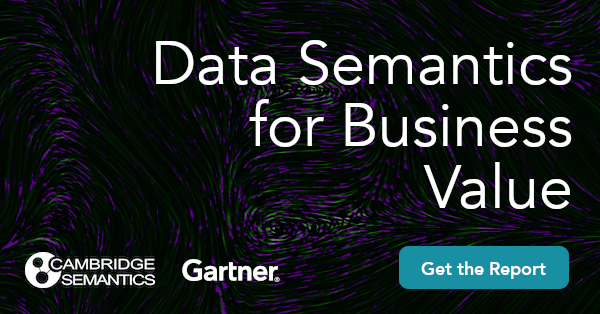“In current data management technology environments, the logical data structure of a relational database management system cannot totally satisfy the requirements for a full conceptual definition of data. A DBMS platform is limited in scope and biased toward the schema-based implementation strategy it employs, whereas real-world problems involve complex, interconnected data that produces meaningful inferences.”
– Guido De Simoni, Robert Thanaraj, and Henry Cook, Gartner® 2023 Adopt a Data Semantics Approach to Drive Business Value.
When scanning the key findings and recommendations in this research report, it is difficult to not nod along. These two points are the simplest way I could find to describe most of what you will read in the report:
- Data silos are limiting. Linking data via semantics powers the dual outcomes of:
- integrating all your data,
- whilst simultaneously organizing all your data for machines and end-users to more easily understand.
- When your data is linked and described by common natural language, generative AI such as LLMs have the innate paths to follow that they were trained on (human language as text), enabling automated data access & analisys.
- LLMs trained on natural language are far more accurate when it comes to tasks like question answering or NLQ generation if the data’s semantics are also provided in natural language.
As always with Modern Data Architectures, relational databases are inherently limited by their rigidity and lack of truly descriptive metadata. When you start thinking of organizing your data use standards like those defined by the W3C, you'll want to direct your attention to data integration models like those built by Cambridge Semantics.
Cambridge Semantics has leveraged and aggregated the technologies and concepts outlined by Gartner in the offerings of Anzo®, AnzoGraph DB®, and not to mention the latest generative AI creation of Knowledge Guru. Cambridge Semantics has led the way in building technology to power data architectures like Data Fabric and/or Data Mesh with semantic Knowledge Graphs.
Read the report if you are interested in implementing a data semantics strategy to make distributed knowledge understandable across data sources, data types, applications, and to end-users.
Per Gartner®, “Data and analytics leaders need to adopt a semantic approach to their enterprise data to drive business value and break data silos.”
The Gartner analysts Guido De Simoni, Robert Thanaraj, and Henry Cook pooled their insights from 1,600+ Gartner client conversations, vendor briefings, Gartner peers, and a collection of Data Semantics publications to write Adopt a Data Semantics Approach to Drive Business Value.
We believe you’ll find the report valuable in planning the future of your Enterprise data environments. Consider Cambridge Semantics for the implementation of these concepts.

